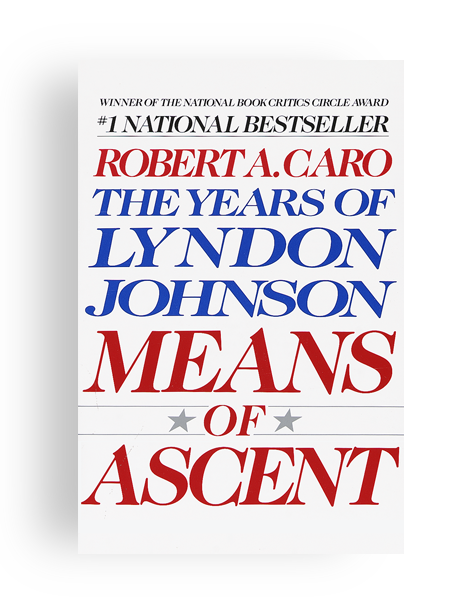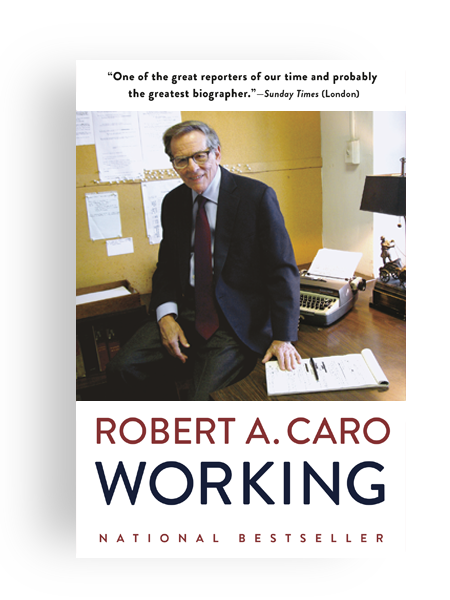Robert A. Caro Archive
AT THE NEW-YORK HISTORICAL SOCIETY
The archive will show “Caro’s extraordinary ability to uncover as well as convey—brilliantly, and with clarity and elegance—the essence of power. That Caro’s research and writing will be permanently on view in our building attests to his monumental standing as a biographer and historian.”
Dr. Louise Mirrer, President and CEO of The New-York Historical Society

THE ROBERT A. CARO ARCHIVE
Turn Every Page
The archive reveals Caro’s development as a writer, the craft of his writing, as well as the sweeping history of New York City and state politics from the 1920s through the 1960s and the history of the United States in the twentieth century. It includes research notes, handwritten and typed drafts, marked proofs, scrapbooks, photographs, annotated news clippings, correspondence and other documents and artifacts. As well, it holds notebooks and transcripts of thousands of his interviews with subjects ranging from Robert Moses and Lady Bird Johnson to obscure figures tracked down—and sometimes interviewed over and over—to nail down every discoverable detail.

Caro found the last few persons alive who worked closely with New York Governor Al Smith, and he interviewed people who worked with New York City Mayor Fiorello LaGuardia. Future historians wanting to write about Smith or LaGuardia will find in Caro’s transcripts material on those two figures and scores of others—including Belle Moskowitz, a pioneering and immensely powerful woman in 1920s politics—that exist nowhere else. He interviewed not only senators but their assistants and other staff members down to the cloakroom attendants and the photographer who recorded Johnson’s swearing in on a plane in 1963. Because of his determination to chronicle not only the powerful but the powerless, the Caro Archive contains interviews with residents of New York neighborhoods Moses destroyed, and with farmers and ranchers from the Texas Hill Country whose lives young Congressman Johnson transformed by bringing them electricity, as well as with African-Americans denied the right to vote—and the heartbreaking consequences to them when they tried to do so—before Johnson passed the 1965 Voting Rights Act. Most of the people Caro interviewed are now deceased, but their testimony—about political power and its potential to do good or ill—is available here.
Also in the Caro Archive are interviews and documents that illuminate aspects of American politics once hidden from view. For example, key figures and documents from one of the important moments of Lyndon Jonson’s career—his stealing of the 1948 Senate election by 87 votes—are here, including the written description by the election judge who directed it, which he gave to Caro when the author tracked him down. Only a minuscule fraction of Caro’s research made it into the books. The unpublished materials extend well beyond Moses and Johnson to encompass much of American life from the streets of New York City to the rutted roads of the Texas Hill Country to the marbled halls of Washington.
Robert Caro Books
He has measurably enriched our lives with his intellectual rigor, his compassion, his openness, his wit and grace.
SIR HAROLD EVANS, THE NEW YORK TIMES







